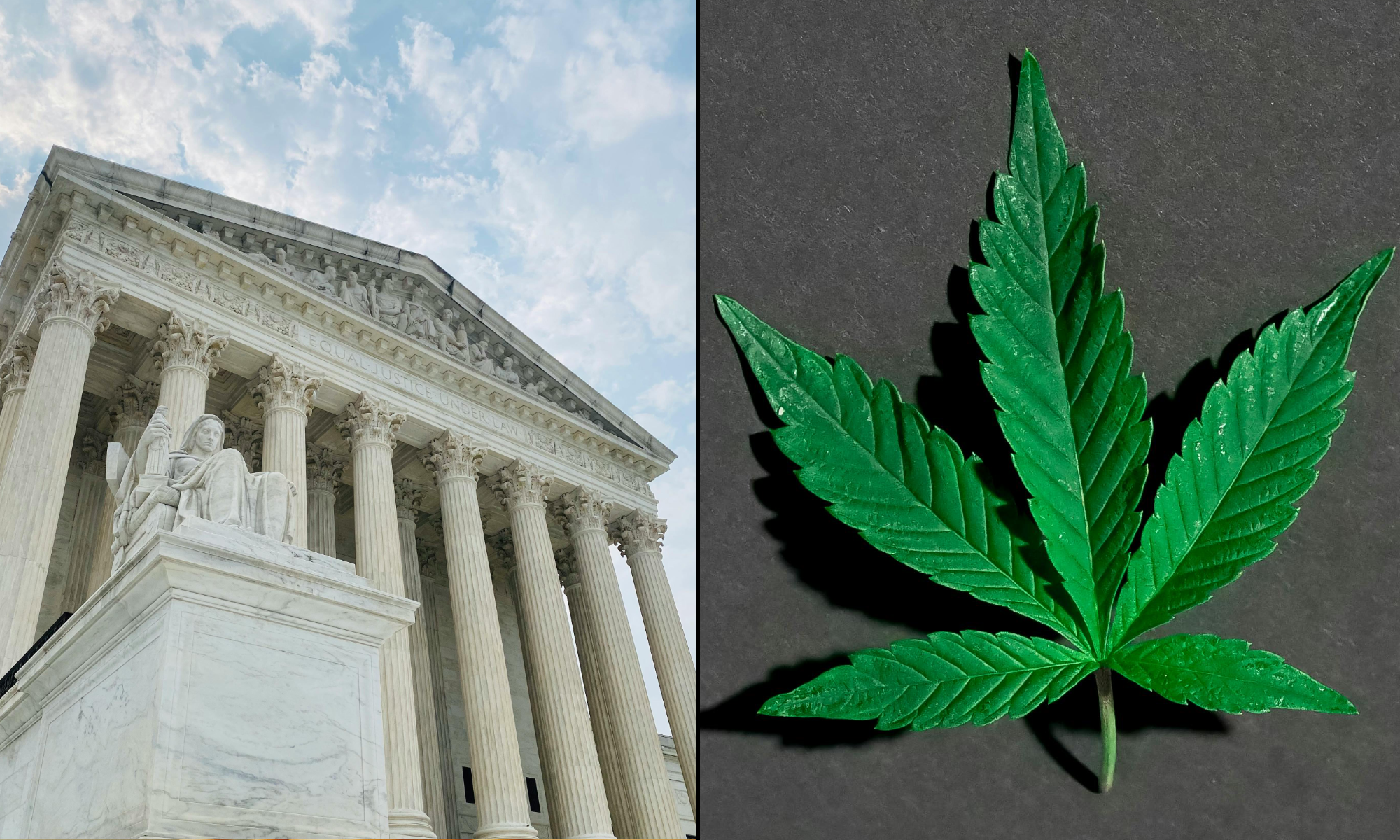Politics
Supreme Court Schedules Closed-Door Meeting To Discuss Marijuana Companies’ Case Seeking To Overturn Federal Prohibition

The U.S. Supreme Court has scheduled a closed-door meeting to discuss a case challenging the constitutionality of federal marijuana prohibition.
After receiving briefs in support for taking up the case involving Massachusetts-based cannabis businesses, justices set a date for a conference on December 12.
The court is being asked to settle the question of whether imposing federal marijuana criminalization within states that have enacted their own legalization laws violates the Commerce Clause of the U.S. Constitution.
The powerhouse law firm Boies Schiller Flexner LLP last month submitted their petition for writ of certiorari from the court on behalf of their clients, and the Justice Department earlier this month declined the opportunity to file a brief for or against the case’s consideration by the justices.
A lead attorney representing the petitioners recently told Marijuana Moment that he’s “hopeful”—albeit somewhat “nervous”—about the prospect of justices ultimately taking up the matter and deciding to address the key legal question about the constitutionality of federal cannabis prohibition.
“Time is of the essence,” Josh Schiller said, noting the dramatic shift in public opinion and state laws governing cannabis. “We think that this is the right time for this case because of the need—the industry needs to get relief from federal oversight at the moment.”
Before the conference was scheduled, the Koch-founded Americans for Prosperity Foundation submitted an amicus brief encouraging justices to take the case.
On Monday, meanwhile, the firm representing the cannabis businesses said the Cato Institute and Pacific Legal Foundation”intend to file briefs amici curiae in support of the petition.”
“Petitioners respectfully request that this letter be circulated with the petition for a writ of certiorari,” David Boies said in the notice to the court.
A U.S. appeals court rejected the arguments of the state-legal cannabis companies the firm is representing in May. It was one the latest blows to the high-profile lawsuit following a lower court’s dismissal of the claims. But it’s widely understood that the plaintiffs’ legal team has long intended the matter to end up before the nine high court justices.
Four justices must vote to accept the petition for cert in order for the court to take up the case.
While it is not clear if SCOTUS will ultimately take the case, one sign that at least some on court might be interested in the appeal is a 2021 statement from Justice Clarence Thomas, issued as the court denied review of a separate dispute involving a Colorado medical marijuana dispensary.
Thomas’s comments at the time seemed to suggest it’d be appropriate revisit the precedent-setting case, Gonzales v. Raich, where the Supreme Court narrowly determined that the federal government could enforce prohibition against cannabis cultivation that took place wholly within California based on Congress’s authority to regulate interstate commerce.
The initial complaint in the current case now known as Canna Provisions v. Bondi, filed in U.S. District Court for the District of Massachusetts, argued that government’s ongoing prohibition on marijuana under the CSA was unconstitutional because Congress in recent decades had “dropped any assumption that federal control of state-regulated marijuana is necessary.”
—
Marijuana Moment is tracking hundreds of cannabis, psychedelics and drug policy bills in state legislatures and Congress this year. Patreon supporters pledging at least $25/month get access to our interactive maps, charts and hearing calendar so they don’t miss any developments.
![]()
Learn more about our marijuana bill tracker and become a supporter on Patreon to get access.
—
At oral arguments on appeal late last year, David Boies told judges that under the Constitution, Congress can only regulate commercial activity within a state—in this case, around marijuana—if the failure to regulate that in-state activity “would substantially interfere [with] or undermine legitimate congressional regulation of interstate commerce.”
Boies, chairman of the firm, has a long list of prior clients that includes the Justice Department, former Vice President Al Gore and the plaintiffs in a case that led to the invalidation of California’s ban on same-sex marriage, among others.
Judges, however, said they were “unpersuaded,” ruling in an opinion that “the CSA remains fully intact as to the regulation of the commercial activity involving marijuana for non-medical purposes, which is the activity in which the appellants, by their own account, are engaged.”
The district court, meanwhile, said in the case that while there are “persuasive reasons for a reexamination” of the current scheduling of cannabis, its hands were effectively tied by past U.S. Supreme Court precedent in Raich.
This comes in the background of a pending marijuana rescheduling decision from the Trump administration. President Donald Trump said in late August that he’d make a determination about moving cannabis to Schedule III of the CSA within weeks, but he’s yet to act.
Meanwhile, last month the Supreme Court agreed to hear a separate case on the constitutionality of a federal law prohibiting people who use marijuana or other drugs from buying or possessing firearms. The Trump administration has argued that the policy “targets a category of persons who pose a clear danger of misusing firearm” and should be upheld.
Photo elements courtesy of rawpixel and Philip Steffan.



